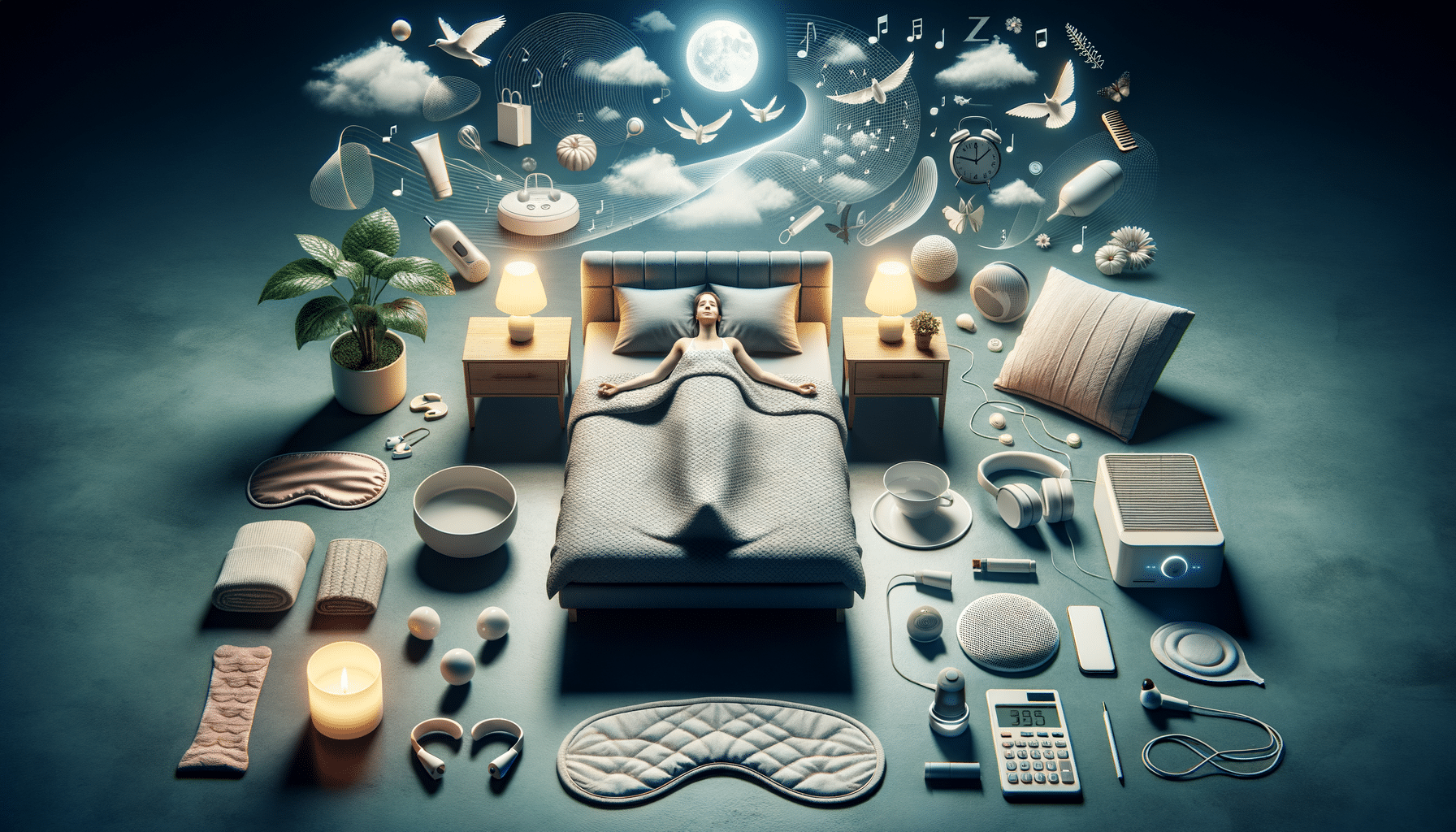
What some might miss when trying to fall asleep more quickly
Understanding Sleep Disorders
Sleep disorders are conditions that affect the ability to sleep well on a regular basis. These disruptions can be due to health problems or by too much stress. Sleep is essential for maintaining physical, mental, and emotional health, and a lack of it can lead to serious health issues. Common sleep disorders include insomnia, sleep apnea, restless legs syndrome, and narcolepsy. Each of these disorders can have different causes and symptoms, making it crucial to understand them individually.
Insomnia refers to the difficulty in falling or staying asleep and can be acute or chronic. Meanwhile, sleep apnea is characterized by pauses in breathing during sleep, often leading to disrupted sleep and daytime fatigue. Restless legs syndrome causes an uncontrollable urge to move the legs, usually due to uncomfortable sensations, which can interfere with sleep. Narcolepsy, on the other hand, involves excessive daytime sleepiness and sudden sleep attacks.
Recognizing the symptoms of sleep disorders is the first step towards treatment. These symptoms can include excessive daytime sleepiness, irregular breathing during sleep, discomfort in the legs, and difficulty falling or staying asleep. Understanding these symptoms can lead to better management and treatment of sleep disorders, improving overall health and well-being.
Causes and Risk Factors
Various factors can contribute to the development of sleep disorders. Stress and anxiety are significant contributors, as they can create a cycle of worry and sleeplessness. Other psychological conditions such as depression can also interfere with sleep. Additionally, lifestyle choices like excessive caffeine or alcohol consumption, irregular sleep schedules, and lack of physical activity can exacerbate sleep issues.
Medical conditions such as asthma, arthritis, and heart disease can also lead to sleep disturbances. For example, asthma can cause nighttime coughing and wheezing, while arthritis can result in discomfort that makes it difficult to sleep. Sleep apnea is often associated with obesity, which is a significant risk factor. Furthermore, age is a natural risk factor, as sleep patterns tend to change with aging.
It is essential to identify these risk factors to tailor effective treatment plans. By understanding the underlying causes, individuals can work with healthcare providers to develop strategies that address these factors, leading to improved sleep quality and overall health.
Diagnosis and Evaluation
Diagnosing sleep disorders typically involves a comprehensive evaluation that includes a detailed medical history and physical examination. Healthcare providers may ask about sleep patterns, lifestyle habits, and any symptoms experienced. Keeping a sleep diary can be beneficial, as it provides a record of sleep habits and patterns over time.
In some cases, healthcare providers may recommend a sleep study, known as polysomnography, to monitor sleep cycles and identify any disruptions. This test measures various physiological parameters during sleep, such as brain waves, heart rate, breathing, and movement. Another diagnostic tool is the Multiple Sleep Latency Test (MSLT), which measures how quickly a person falls asleep in a quiet environment during the day.
Accurate diagnosis is crucial for effective treatment. By identifying the specific type of sleep disorder and its underlying causes, healthcare providers can develop personalized treatment plans that address the unique needs of each individual.
Treatment Options
Treatment for sleep disorders varies depending on the type and severity of the disorder. Lifestyle changes are often the first step in managing sleep disorders. These changes can include establishing a regular sleep schedule, creating a comfortable sleep environment, and avoiding caffeine and alcohol before bedtime.
Cognitive-behavioral therapy (CBT) is a highly regarded treatment for insomnia. It involves changing negative thoughts and behaviors that contribute to sleep problems. For sleep apnea, continuous positive airway pressure (CPAP) therapy is commonly used to keep airways open during sleep.
Medications can also be prescribed to help manage sleep disorders. These may include sleeping pills for short-term relief or medications that treat underlying conditions such as depression or anxiety. It’s crucial to work closely with healthcare providers to determine the most appropriate treatment plan, as some medications can have side effects or lead to dependency.
Alternative and Complementary Therapies
In addition to conventional treatments, alternative and complementary therapies can offer relief for sleep disorders. Practices such as yoga, meditation, and mindfulness can help reduce stress and promote relaxation, making it easier to fall asleep and stay asleep.
Herbal supplements like valerian root and chamomile are popular natural remedies for sleep issues. However, it’s important to consult with a healthcare provider before using these supplements, as they can interact with other medications and may not be suitable for everyone.
Acupuncture and aromatherapy are other alternative therapies that some individuals find beneficial. Acupuncture involves inserting thin needles into specific points on the body to promote balance and healing, while aromatherapy uses essential oils to create a calming environment conducive to sleep. Exploring these options can provide additional support for those struggling with sleep disorders.
Conclusion: Prioritizing Sleep Health
Sleep is a fundamental aspect of overall health and well-being. Addressing sleep disorders through a combination of lifestyle changes, medical treatments, and alternative therapies can significantly improve sleep quality and, consequently, quality of life. It’s essential to recognize the signs of sleep disorders and seek professional help to develop an effective treatment plan tailored to individual needs.
By prioritizing sleep health, individuals can enhance their physical, mental, and emotional well-being, leading to a more balanced and fulfilling life. Remember, a good night’s sleep is not just a luxury; it’s a necessity for a healthy and productive life.